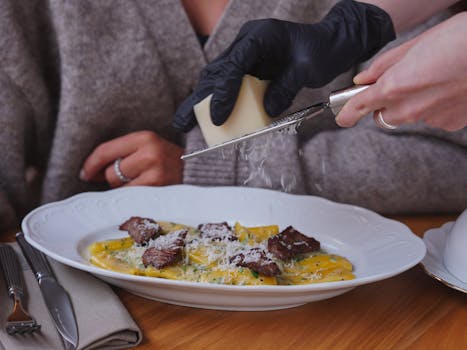When it comes to feeding your dog human foods, it’s natural to wonder what’s safe and what isn’t. Dill, the aromatic herb often used to flavor dishes, might seem harmless—but is it safe for dogs? Let’s dig into whether your furry friend can enjoy dill and how to introduce it safely.
🌿 Can Dogs Eat Dill?
The short answer is yes, dogs can eat dill in moderation. Dill is non-toxic to dogs and can even offer some health benefits. However, like any new food, it’s essential to introduce it carefully and monitor your pet for any reactions.
Dill is rich in antioxidants, vitamins, and minerals, which can support your dog’s health. It’s also known for its potential benefits for digestion and breath freshness. That said, not all dogs will benefit from or enjoy dill, so it’s best to consider your dog’s individual needs.
🧐 Benefits of Dill for Dogs
Dill is more than just a tasty herb—it has properties that could help your dog feel their best. Here are some key benefits:
- Rich in antioxidants that combat free radicals
- Contains vitamins like vitamin C and A
- Supports healthy digestion and may help with gas or bloating
- Has antimicrobial properties that can freshen bad breath
- May promote a healthy immune system
While these benefits are promising, dill should never replace a balanced diet or vet-recommended treatments. Think of it as a healthy garnish rather than a main ingredient.
⚠️ Risks and Precautions
Although dill is generally safe, there are a few things to keep in mind before sharing it with your pup:
- Some dogs may have allergies or sensitivities to dill
- Overfeeding dill can lead to stomach upset
- Pickled dill (like in dill pickles) is not safe due to high salt content and added seasonings
- Avoid feeding dill seeds, as they can be harder for dogs to digest
If your dog has never had dill before, start with a small amount and watch for any signs of an adverse reaction, such as vomiting, diarrhea, or itching. If these symptoms occur, consult your veterinarian.
🍴 How to Safely Feed Dill to Your Dog
If you’re ready to let your dog try dill, here are some safe feeding guidelines to follow:
- Use fresh or dried dill, free of added salt, oils, or seasonings
- Chop fresh dill finely to make it easier for your dog to digest
- Sprinkle a small pinch of dill over your dog’s regular food
- Limit to no more than a teaspoon for small dogs or a tablespoon for larger dogs
- Introduce it slowly and watch for any reactions
Remember, dill should only be an occasional treat or supplement. It’s not a replacement for a complete and balanced diet.
🐾 Signs Your Dog Might Enjoy Dill
Not all dogs are the same when it comes to taste preferences. Some dogs may love the flavor of dill, while others might turn their nose up at it. Here are a few signs your dog might enjoy dill:
- They show interest in your food when it contains dill
- They eat their food faster when you sprinkle dill on top
- They seem curious and sniff eagerly when you offer them dill
If your dog doesn’t seem interested, that’s okay! There are plenty of other safe and healthy treats they might prefer.
📋 FAQs
Can dill help with my dog’s bad breath?
Yes, dill has antimicrobial properties that may help freshen your dog’s breath naturally. However, persistent bad breath could indicate dental issues, so consult your vet if it continues.
Is dill safe for puppies?
Dill is generally safe for puppies, but their sensitive stomachs make it even more important to introduce it gradually and in tiny amounts.
Can my dog eat dill pickles?
No, dill pickles are not safe for dogs. They contain high levels of salt and other seasonings, like garlic, which can be harmful to dogs.
What should I do if my dog eats too much dill?
If your dog consumes a large amount of dill, they may experience mild stomach upset. Monitor them for symptoms like vomiting or diarrhea and contact your vet if you’re concerned.
Are there any other herbs that are safe for dogs?
Yes, many herbs like parsley, basil, and rosemary are safe for dogs in moderation. Always check with your vet before introducing new herbs to your dog’s diet.
References
Book a $49 online vet consultation at https://www.dialavet.com for fast, expert advice.























